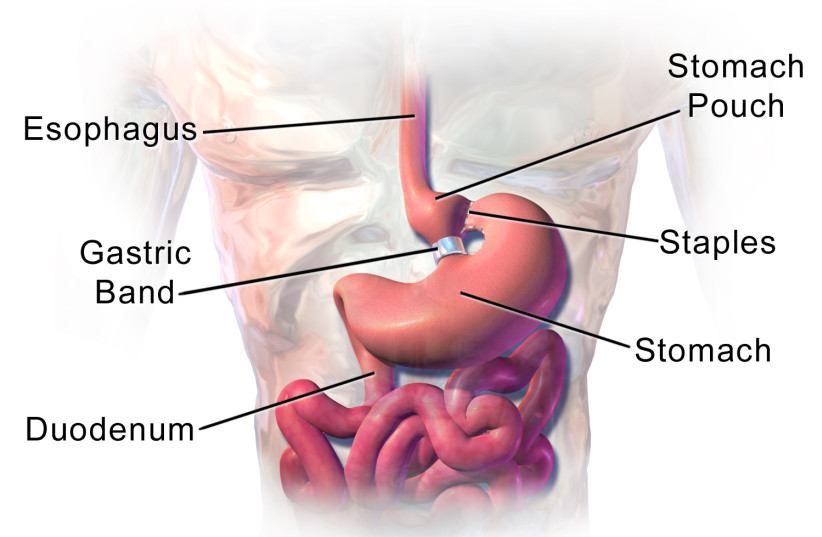In recent years, bariatric surgery has become almost a matter of routine. Many people choose it to lose weight and to avoid the medical complications that come with severe obesity. Dr. Shai Maron-Eldar, director of the Obesity Treatment Center at Ichilov Hospital in Tel Aviv was a guest on the "Specialist Clinic" podcast to explain types of surgeries and who they’re suitable for.
"Today there are actually three surgeries that are the most popular," explained Maron-Eldar, "The mini-bypass is the most popular surgery, it’s also called ‘gastric bypass at one launch’. Another surgery that’s very common, and was more common until a few years ago, is the gastric sleeve. And the third operation, which is actually the oldest operation, is the full bypass operation, which we’re still doing in specific cases that are suitable for it."
When is it time for bariatric surgery?
Surgeries of this type aren’t suitable for every person who isn’t happy with his weight. "There are very clear indications for bariatric surgery," explained Maron-Eldar. "We determine who’s suitable according to BMI, the body mass index, which is a very simple calculation of weight divided by the height squared. Once this number is greater than 40, one really needs surgery even if there aren’t comorbidities. In BMI over 35, surgery should occur if there are already comorbidities for obesity: fatty liver, diabetes, hypertension, excess cholesterol, joint burnout, knee pain, sleep apnea and more. "It should be noted, added Maron-Eldar, that very few people with a BMI over 40 are completely healthy.”

And diabetes is an important issue when it comes to bariatric surgery. "Today, because these surgeries are so effective in diabetic patients who have trouble getting their sugar levels to balance, and need medication, already at a BMI of 30 we allow them to undergo bariatric surgery because these surgeries are so effective and helpful in controlling diabetes type 2.” Maron-Eldar added that bariatric surgery leads to a regression of diabetes so 85% of patients who have surgery will reach a complete remission of the disease and stop taking medication. "There is a dramatic effect, it isfantastic," he said.
Surgeries are suitable from age 18 to age 65. Maron-Eldar is careful to stay within the margins of these ages. He operates on 14- and 15-year-olds, but much more carefully, choosing patients the way a tweezer plucks out something. For people over 65, he’s much more strict in letting people have surgery.
Complications<br>
Maron-Eldar said that "in the balance between risk versus chance, those who already meet the criteria for surgery, we as doctors believe that the chance of surgery will cure a person from medical problems, improve quality of life and prolong life, and these chances are higher than any risk of surgery. This is the bottom line.” He added that complications can be serious and life-threatening, but these risks are marginal, in very low percentages. These procedures are very safe, yet there aren’t any guarantees that there won’t be complications and side effects.
After a mini-bypass, for example, the patient will have a smaller stomach and will be satisfied after much smaller amounts of food, about 20% of what one ate before. The patient also eats much less and absorbs less. Problems include heartburn, a bitter feeling or taste in the mouth, and the element of under-absorption often causes very unpleasant and foul-smelling gas, and sometimes also diarrhea. These don’t affect someone’s lifestyle, but one will have more bowel movements.
And what about life after surgery? "It’s important to know one very basic thing. Surgery is a very powerful tool to lose weight to be near normal body weight. but in order to maintain this result over time, and I emphasize this to my patients, the role passes to them. The effect of the surgery sometimes blurs as time goes by and those who don’t adhere to habits, rules, new lifestyle i.e. - eat right, exercise - may see the weight creeping back," Maron-Eldar clarified.
"Surgery will always probably help," he added, but made it clear that the body is a sophisticated machine, and slowly will strive to return to the weight it was comfortable in. The effect of the surgery will be maintained, though, and it will be easier to maintain weight after surgery, but it requires effort and adherence to a healthy lifestyle.
Why do people choose surgery?
Maron-Eldar made it clear his patients are usually people who have tried to lose weight dozens of times in other ways, but haven’t succeeded. So even when they’re told the side effects, they want the operation. Side effects aren’t a deterrent. Maron-Eldar added that this changes lives. For someone who always weighed 40-50 kilos above the normal weight, then suddenly they see significant weight loss, it changes them. They’re willing to sign up for almost any side effect, the main thing is to get rid of the excess weight and be a healthier person.
Most patients very much enjoy life after surgery, living a much better life than they had before. Some people have side effects that make them regret the surgery, but most people are happier, leaner, and healthier, with few side effects and they live well.
